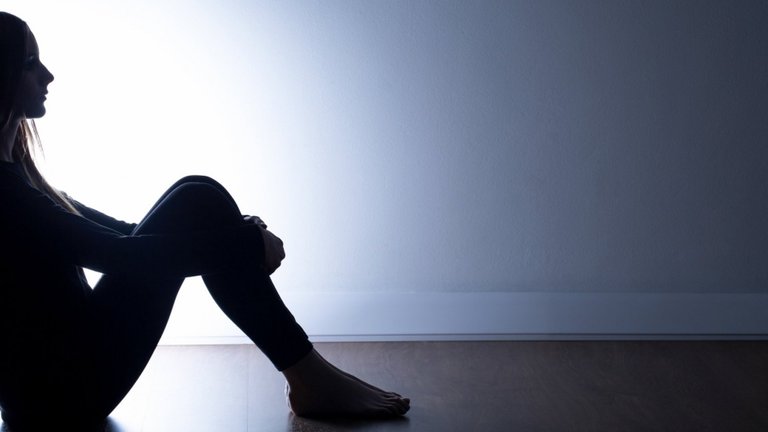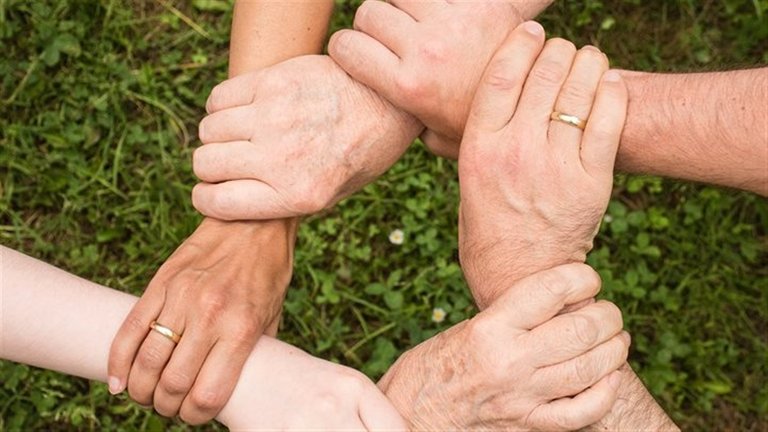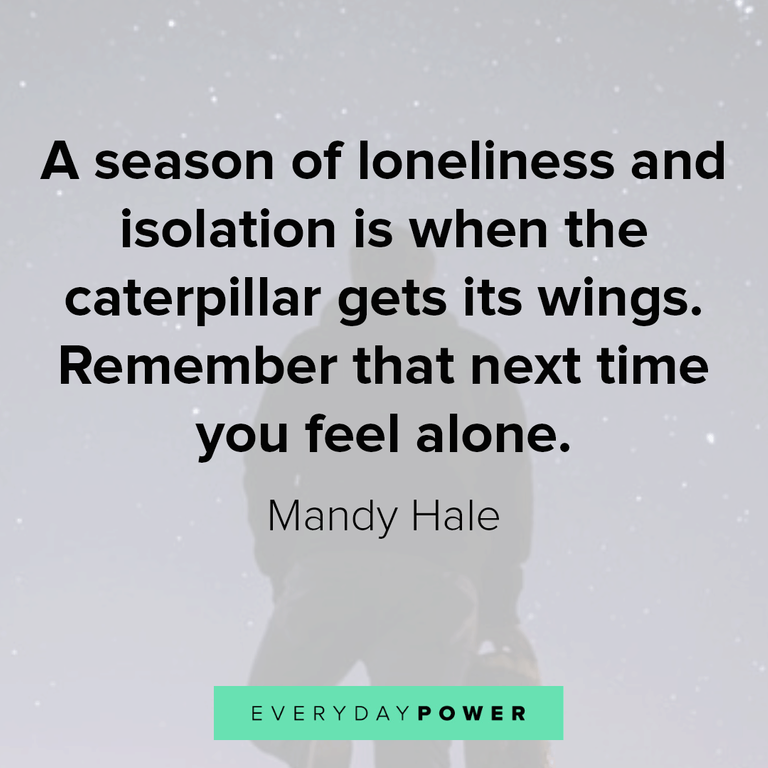Who Among Us Have Never Experience Loneliness? You Should Start Asking Yourself Why

Loneliness is a depressing feeling and difficult to endure. Especially in the corona crisis, where many people have to isolate themselves, feelings of loneliness can spread, often combined with deep melancholy and sadness. Lonely people are not only found in pandemic times.
The way out of loneliness starts with yourself. If you think you felt lonely, first try to look at your situation objectively. Being alone does not mean being lonely. Being alone can also help you relax, find peace, and reduce stress. Start getting interested in yourself again. Ask yourself which books you have wanted to read for a long time, which films you want to see, which music makes you happy, which food you like, which sport you like to do, which landscapes or cities you like.
If the days drag on endlessly, there is a great danger of falling into melancholy. Those affected withdraw, start brooding, and feel lonely. What can you do with this loneliness? Now you should get up and structure your day. Make a detailed daily and weekly schedule and try to stick to it.
Get in touch with other people
What can you do when you are alone? In small steps you can try to get in touch with people again. Especially in the corona crisis, where direct human contact should be reduced for a certain time, you can use the technical communication options to combat your loneliness. Have a look in your phone book or mobile phone - who have you not spoken to for a long time? Call your friends, friends, and family members and ask how they are doing. Don't wait for someone to get in touch with you. If you are afraid of it, a short message is enough to get you started.

Even in the Corona crisis, it is allowed, for example, to smile at other strollers while walking. If you get a smile back, maybe you can find the courage and talk to people from your daily life, such as your neighbors - in the stairwell or over the garden fence. A few words are often enough to get you started. What helps against loneliness? Whether you are lonely because you hardly have any contact with other people or because you do not feel understood and isolated in your environment - approach people who have the same interests and passions:
You will meet like-minded people, for example, in courses at the adult education center or in sports groups, learn a new language or continue your education in your field of interest. Volunteering is doubly effective, you experience the satisfying feeling of being needed and helping others, and at the same time, you can make new contacts.
Overcoming loneliness in old age
Older people in particular are most affected by loneliness. Important caregivers, friends, relatives, and acquaintances of the same age die, the social network is getting smaller and smaller. Also, there are often diseases and limited mobility.
It is also more difficult to make new contacts and friendships are more difficult. But even at this age, there are opportunities to get in touch with others:
- Stay in touch or get in touch with younger relatives via text messaging or video calls.
- Use virtual options such as chat groups or social networks, if possible.
- If possible, live out your hobbies or find new ones.
- Use senior meetings in your community.
- If you are fit enough, a pet can keep you company.
- Get further training, for example with a degree in old age or with a language course.
- Find a volunteer that inspires you.
- If your physical condition allows, join a hiking group or a club.

What can we do with lonely people
We must take care of each other. Not every person living alone, young or old, is lonely. However, if someone complains about loneliness, we have to take it seriously. This could be a warning sign of an onset of depression. Then we should be there for this person and take time for them.
At the moment we should not meet older relatives and acquaintances in order not to put them at risk of infection with the COVID. Then important contacts are lost and they could get lonely. So right now we should signal to them every day that they are not alone, call your elderly or single relatives, acquaintances or neighbors, insert a slip of paper under the door, send a postcard, speak to you over the garden fence with the necessary distance or serenade in front of the window.
Symptoms of Loneliness
The definition of loneliness is the feeling of exclusion, lack of belonging and emotional isolation. Typical feelings of loneliness are sadness, depression, helplessness, hopelessness, boredom, inner emptiness, self-pity, longing, and despair.
Loneliness is an inevitable experience of every person, which is experienced differently depending on the life situation and individual character. That is why loneliness is a subjective phenomenon and not to be equated with actual loneliness or social isolation, many people are often alone but do not feel lonely. Conversely, people with many social contacts in family, work, school, or social institutions can feel lonely.

Social contacts are sorely missed
Those affected experience and evaluate the inner separation from others and the extent of their social ties as negative. They find the subjectively missing social contacts painful because this is usually accompanied by a lack of recognition, confirmation, appreciation, and affection by others. Those affected want to be noticed, but they have difficulties in building a mutual relationship. They find it difficult to overcome their isolation on their own.
Common characteristics of lonely people
- They are very self-critical
- Consider failures more than successes
- They see themselves very differently
- Justify defensively
- Devalue your counterpart
- Adapt excessively
- Afraid of rejection
- Often have pessimistic, irrational and paralyzing thought
- Withdraw quickly
- Introverted or have poor social skills
Where does loneliness come from?
Loneliness does not necessarily arise when good social relationships become fewer or even missing. Some people are happy with just a few contacts. It develops when we are involuntarily alone or feels that the existing social relationships and contacts are not sufficient. At the same time, lonely people are often ashamed of their situation, which can drive them further into retreat and resignation.
Loneliness occurs in every age group, among children, adolescents, young adults, middle-aged people, and the elderly. These people lack companions, sympathy, and friendship.

Factors that can trigger loneliness
Single-person households
The increasing number of single households is forcing involuntary loneliness. Especially when people feel lonely, being alone seems to be associated with an increased likelihood of mental illness such as depression or anxiety and obsessive-compulsive disorder. It is not entirely clear whether being alone promotes mental illness or whether people with mental illness consciously seek the anonymity of the big cities and a single household.
Aging society
People are getting older and older at the same time, birth and marriage rates decrease. The elderly are often not necessarily integrated into the family, for example, because relatives live in other cities or place little value on close family contacts. In old age, poverty or health problems make it difficult for single people to take part in public life.
Changed communication behavior
Communication is changing through social media. Some people communicate actively with virtual contacts, but their direct contact with real people is often lost. Conversely, some people also find new contacts via the Internet that can develop into love relationships, friendships, or professional partnerships in the real world.
Children
If the parents are very professionally involved or are single parents and offers from kindergartens, schools or associations cannot compensate for their parental absence, some individual children become lonely. A change in kindergarten or school can also make children lonely if they find it difficult to make friends.
Unemployment
If the work is dropped, colleagues are suddenly missing and a structured daily routine. At the same time, those affected have to restrict themselves financially, which is why they withdraw even more. In the long run, this can lead to loneliness.
Sickness & Diseases
Chronic diseases, cancer, depression, psychotic disorders, and dementia, in particular, can cause those affected to be lonely.
Critical phases of life
Difficult times like puberty, separation from a life partner, loss of close relatives, age, change of place of residence or job can force loneliness.
Bad experiences
In some cases, loneliness is also a form of self-protection because people have had bad experiences with society. Who is bullied, bossed on the boss's list, or has other experiences of exclusion can be lonely under certain circumstances.

Chronically lonely people are at higher risk of:
- Cardiovascular diseases
- Chronic stress
- Dementia
- Thoughts of suicide
- Depressions
- Sleep disorders
- Anxiety and obsessive-compulsive disorder
As a result, the likelihood of premature death ultimately increases. In part, this may also be due to the fact that lonely people pay less attention to themselves and thus live more healthily. This is how they eat worse, lonely children, for example, become increasingly obese through substitute meals. Lonely people also smoke more often. As health data show, lonely people also visit a doctor more often and are more often inpatient treatment among other things due to psychosomatic diseases such as back pain.
It becomes problematic when loneliness goes hand in hand with immobility, helplessness, and social isolation, especially among children, the elderly, and disabled people. Then life-threatening shortages of care can arise.
Prevent loneliness
So that you don't get lonely in the first place, it's worth taking care of your social network throughout your life - even beyond the family. Because marriages don't necessarily last forever, especially older life partners can die before you, and children often find their home in other cities.
Loneliness is a bad think...it can destroy you from inner side
Indeed, some treated it as a simple thing because they don't understand its real effect.